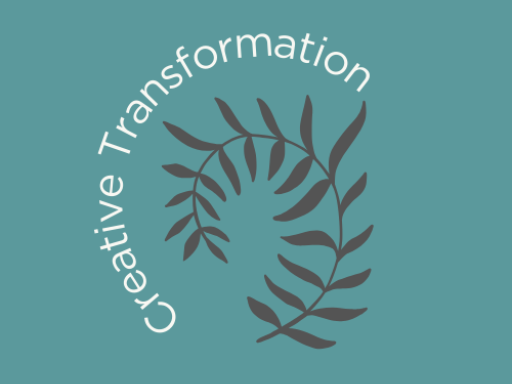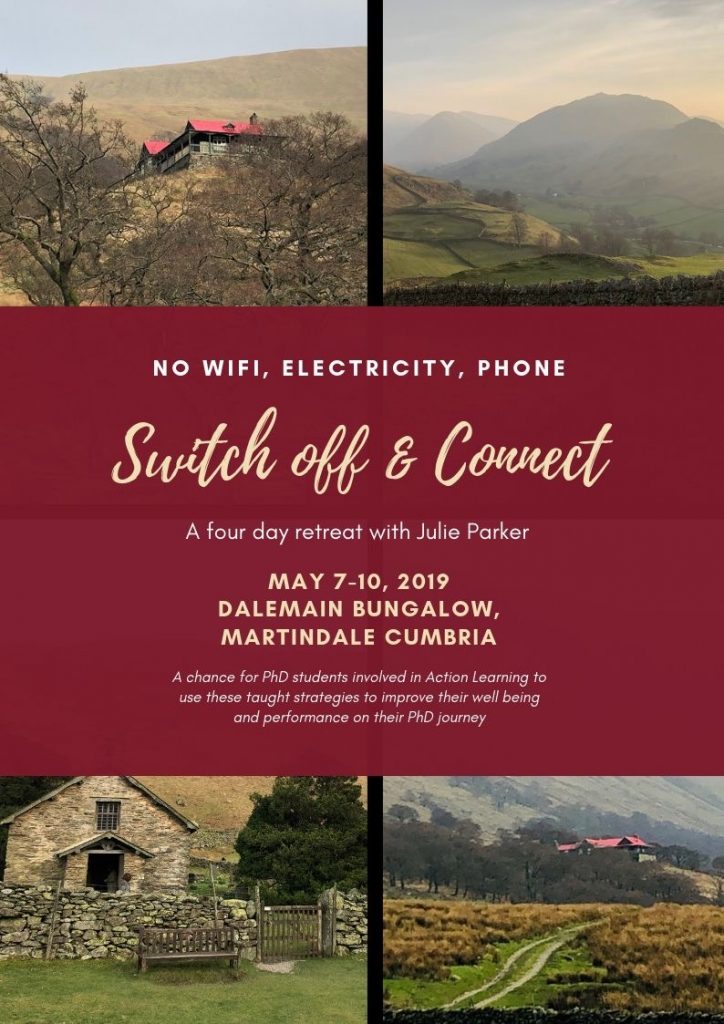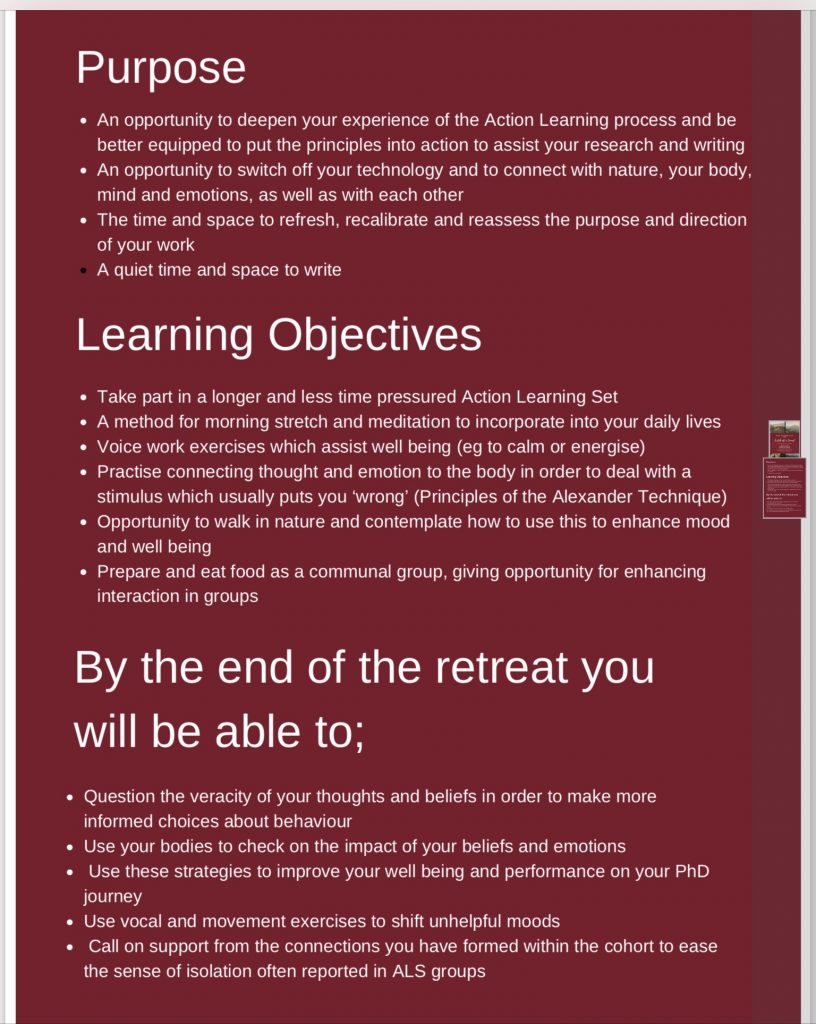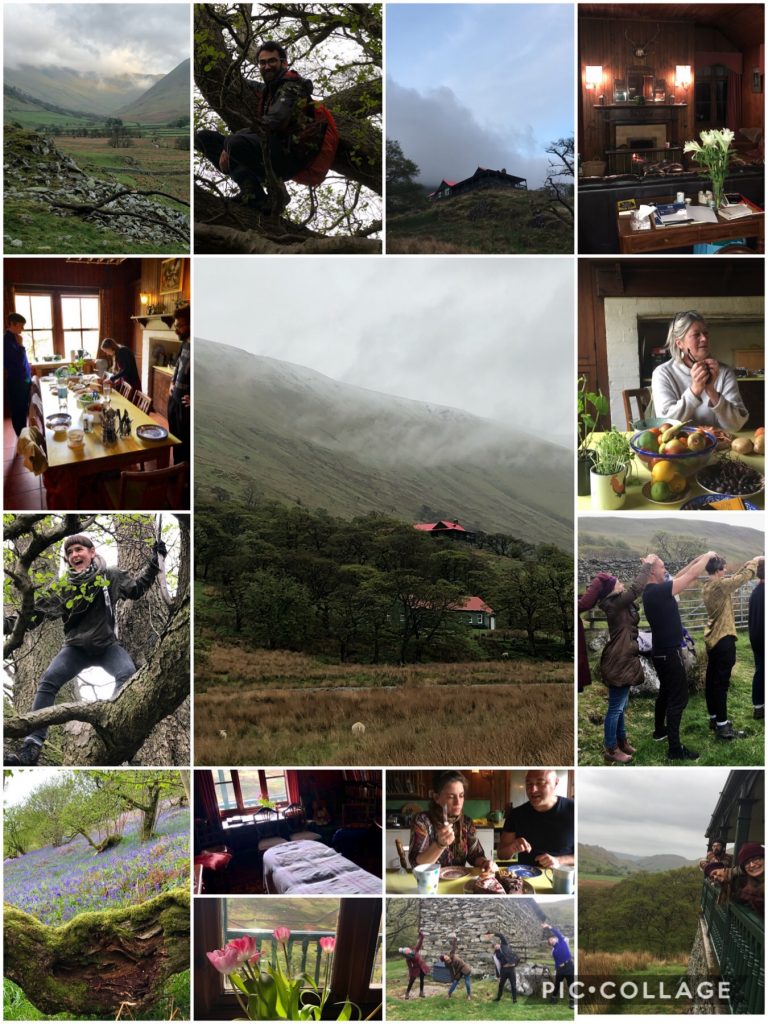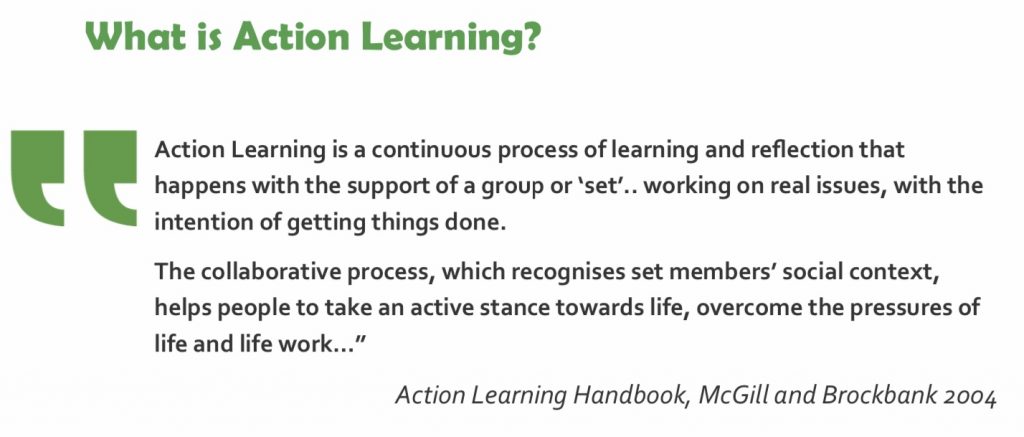
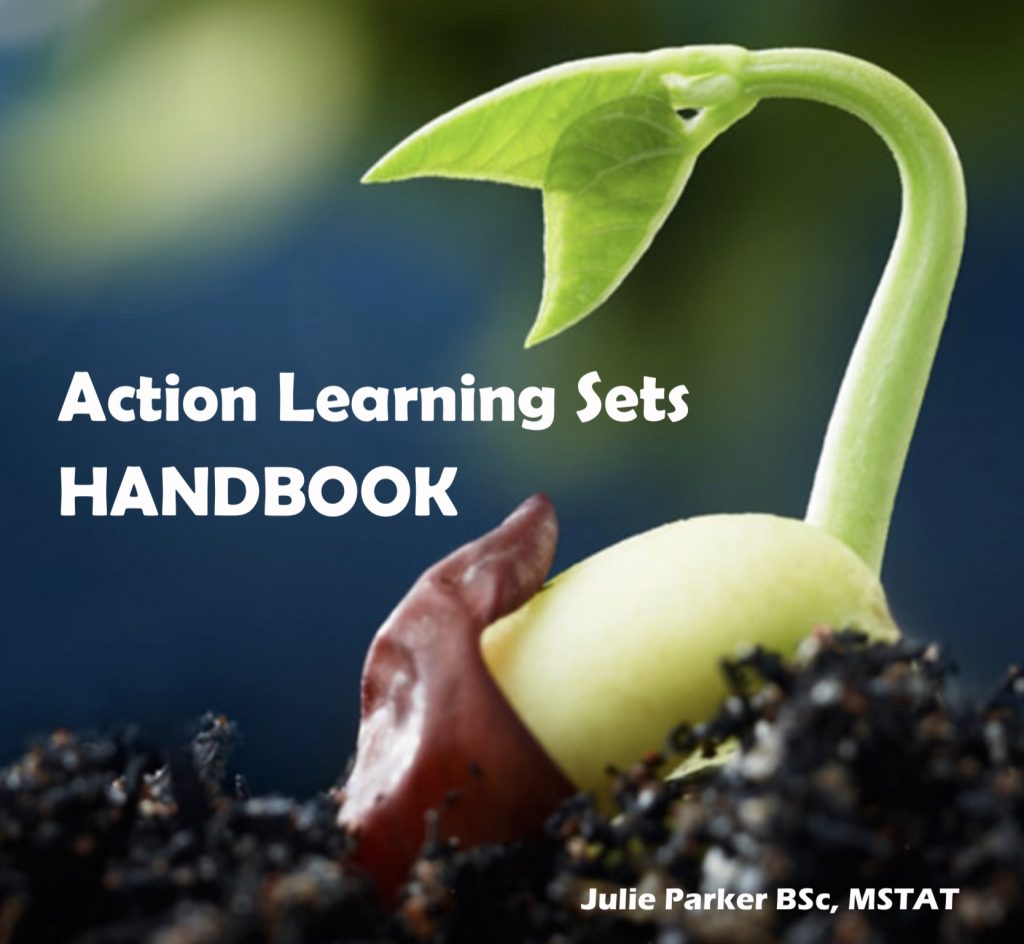
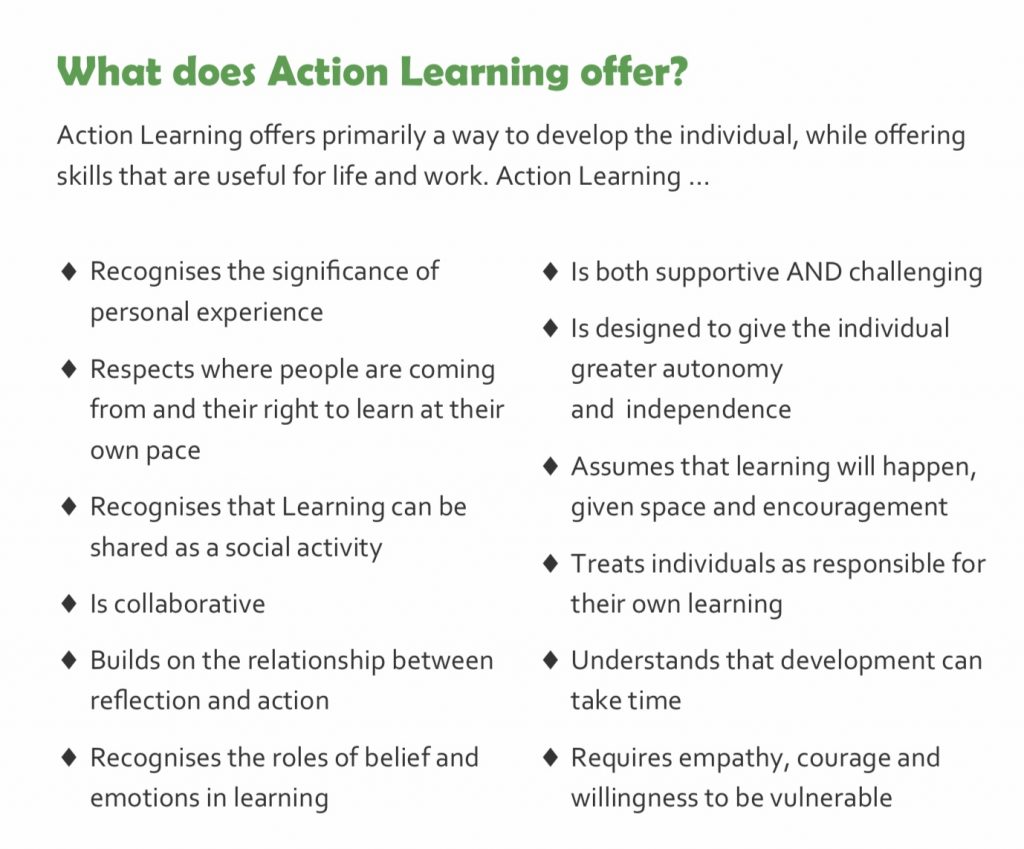
By participating in action learning sets, you will learn to:
- Listen deeply to the thoughts and feelings of others
- Empower others to achieve self-led learning through the use of questions rather than advice
- Challenge your own ideas and beliefs
- Use these strategies to improve your critical thinking, cognitive skills and wellbeing through allaying the anxiety that arises with unhelpful thinking
- Allow the vulnerability (within a safe environment) that is necessary for connection, creativity and authenticity
- Use reflection and accountability to change unhelpful thinking and behaviour
Packages:
- One day Action Learning Taster Day https://www.creativetransformation.org.uk/talks-workshops/
2. One day training in the methodology and practice of ALS, followed by 6 half day meetings through the year and a final evaluation/reflection meeting.
3. Package 2 plus an Action Learning Retreat, which can form part of the package. A Retreat could replace the 1 day training, be used in place of one of the sessions during the year, or in place of the evaluation/reflection meeting
Copies of my Handbook are Provided as part of all packages.
Action Learning for Executives:
Julie Parker is one of very few facilitators I would recommend.
The challenge was to develop strategies to embrace change, deepen cross-portfolio collaboration and support executive well-being.
Julie’s application of Action Learning techniques was highly effective and elicited strong engagement from my senior team.
The techniques gave us easily applicable strategies that we have successfully embedded within the team to develop cohesion and mutual support.
The techniques also enhance our strategic and creative thinking to ensure inclusive and genuinely empathetic listening and decision-making.
Professor Duncan Bentley, Deputy Vice Chancellor (Academic), Swinburne University of Technology, Melbourne, Australia
Action Learning for Post-grads & Researchers:
Feedback from the WRoCAH/CHASE. PhD Pilot scheme on the most useful aspects of ALS:
• As a student studying ‘at a distance’, the opportunity to foster a strong sense of understanding and empathy among individuals going through similar experiences was invaluable. …learning to frame questions in a non-judgmental fashion was both challenging and highly rewarding.
• The degree to which we were trained to listen and self reflect on what each member of the group contributed has encouraged me to address other areas of my life that have acted as barriers to my progression. ..This is having a very positive affect on my research and my attitude to colleagues professionally and socially. The degree of unbiased reflection we as a group have learnt is the most valuable dividend from this experience.
• As a would-be teacher, I am grateful for the practice in focused, attentive, purposeful listening which this experience offered. I found that practice in simultaneously listening and constructing an open-ended .. question immensely useful when leading workshops for undergraduates this term. As a researcher, learning to reformulate my uncertainties as goal-oriented or option-seeking questions, rather than as dead-end statements of anxiety or inability, helped me to carry on work even when discouraged.
• The materials were great, our facilitator was a real expert and allowed the group to feel safe.
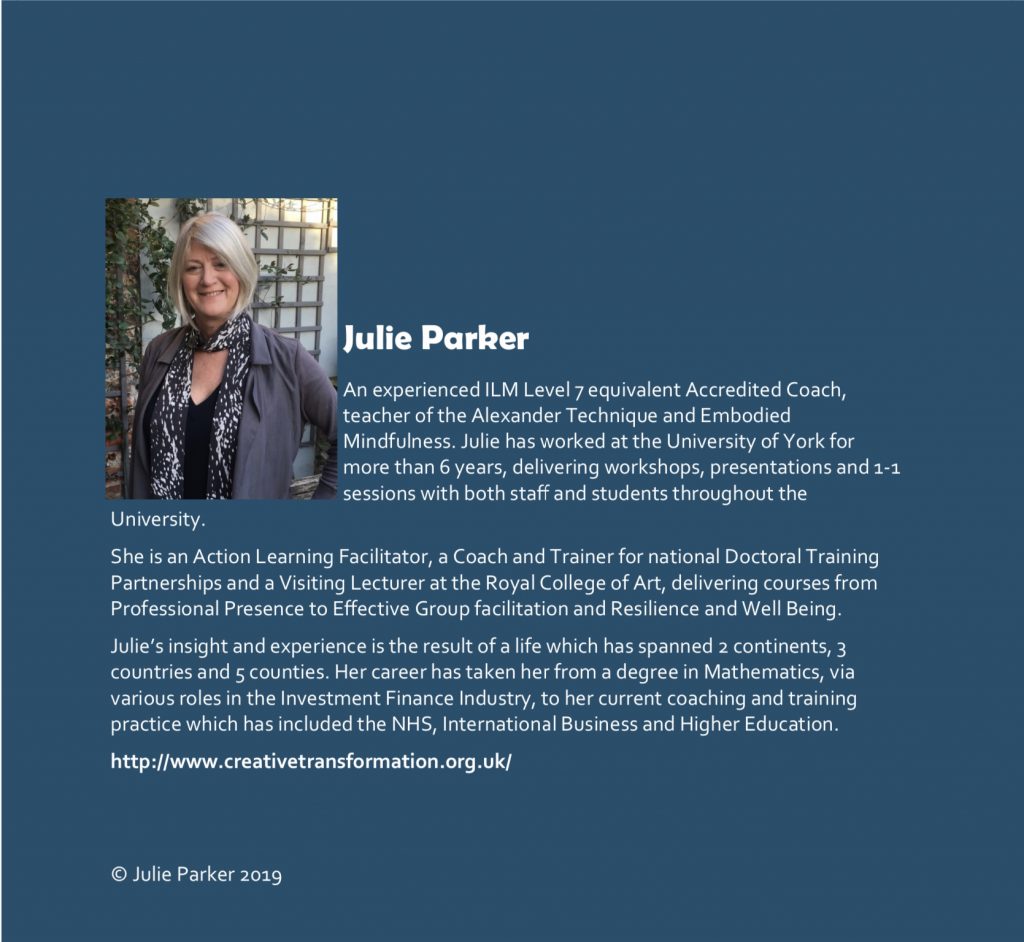
To obtain a copy of the Handbook or to enquire about a training day or setting up an ALS
